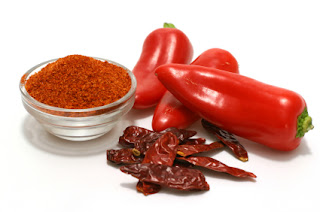Drink Your Turmeric!
from Good Home Design 
In case you didn’t know, Turmeric is one of the best natural remedy for a lot of diseases. [That is absolutely true.] It has anti-inflammatory proprieties, alongside with antioxidant, anti-bacterial, anti-viral and cancer-fighting ones. Furthermore, it has been shown that in treating depression is even more effective than any other conventional drugs out there. Today we are going to concentrate on the ability of turmeric to help combat depression.
This looks good. I put turmeric in my carrot juice and it definitely invigorates. The picture shows the ingredients for an orange, lemon, ginger, carrot, and turmeric lemonade. It looks delicious and refreshing. This is a decent drink to try in the morning. The ginger and turmeric and citrus juices have lots of enzymes that will activate your intestinal enzymes that help digest any protein you'll eat shortly after.

In case you didn’t know, Turmeric is one of the best natural remedy for a lot of diseases. [That is absolutely true.] It has anti-inflammatory proprieties, alongside with antioxidant, anti-bacterial, anti-viral and cancer-fighting ones. Furthermore, it has been shown that in treating depression is even more effective than any other conventional drugs out there. Today we are going to concentrate on the ability of turmeric to help combat depression.
TURMERIC AS A TREATMENT for DEPRESSION
The benefits for
your health of this super root are extraordinary. It lowers the risk of heart
disease, keeps your brain healthy and the research conducted has also shown
that it helps lift depression, as already mentioned. Curcumin (the active
ingredient in turmeric) has the same effects as a prescription medicine called
fluoxetine (the generic form of Prozac). Additionally, Turmeric, contrary to
prescription drugs for treating depression, has no adverse effects on your
health, as the clinical trial on major depressive disorder (MDD) has revealed.
Dr. Ajay Goel,
Baylor Research Institute and Charles A Sammons Cancer Center, Baylor
University Medical Center and study co-author, said about the active
ingredient in turmeric: “It is a novel and surprising application for this
natural medicine. People with depression have higher levels of inflammation in
the brain. Also, people with depression have lower levels of neurogenesis in
the brain, meaning they make fewer new brain cells than people with no history
of depression. Curcumin is both a potent anti-inflammatory agent and a powerful
stimulator for neurogenesis.”
For reducing inflammation in your
body, you can always add some turmeric to your recipes.
INGREDIENTS:
4 cups cold filtered or sparkling water
2 tablespoons freshly grated or powdered turmeric
4 tablespoons of 100% maple syrup, honey or Stevia if you
are avoiding sugar
Juice of 1 1/2 lemons or limes
Juice of 1 blood orange (optional)
INSTRUCTIONS:
Mix all the ingredients into a small
pitcher, stir and serve with a slice of lemon as a garnish.





